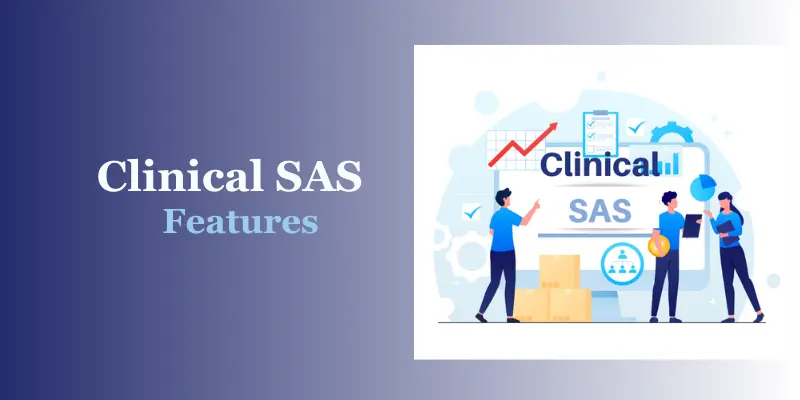
Clinical SAS (Statistical Analysis System) has long been a cornerstone in clinical research, providing robust tools for data management, statistical analysis, and regulatory submissions. As the landscape of clinical trials and healthcare continues to evolve, so must the tools and technologies we rely on. For those looking to stay ahead in this dynamic field, pursuing Clinical SAS Training in Chennai offered by FITA Academy can be a valuable step. This blog explores the future of Clinical SAS, considering emerging trends and advancements that could shape its evolution in the coming years.
Increased Automation and Artificial Intelligence
One of the most significant trends to influence Clinical SAS’s future is the integration of automation and artificial intelligence (AI). Automation can streamline repetitive tasks such as data cleaning, validation, and report generation, significantly reducing the time and effort required. AI, particularly machine learning algorithms, can enhance data analysis by identifying patterns and insights that may not be immediately evident through traditional statistical methods. This combination of automation and AI promises to make Clinical SAS even more powerful and efficient.
Enhanced Data Integration Capabilities
As clinical trials become increasingly complex, integrating diverse data sources becomes crucial. Future iterations of Clinical SAS are expected to offer enhanced data integration capabilities, allowing researchers to seamlessly combine data from electronic health records (EHRs), wearable devices, genomic studies, and more. This holistic approach to data management will enable more comprehensive analyses, leading to better-informed decisions and more personalized treatment strategies. Clinical SAS Training can provide essential knowledge and skills to manage and analyze diverse data sources effectively for those looking to leverage these advanced capabilities.
Real-Time Data Analysis and Reporting
The demand for real-time data analysis and reporting is on the rise, driven by the need for timely insights in clinical trials. The future of Clinical SAS will likely include advanced tools for real-time data monitoring and analysis, enabling researchers to track trial progress and outcomes more closely. This capability will be particularly beneficial for adaptive trial designs, where ongoing data analysis informs adjustments to the study protocol, thereby improving efficiency and patient safety.
Emphasis on Data Security and Compliance
With the growing focus on data privacy and security, future developments in Clinical SAS will emphasize ensuring compliance with global regulatory standards. Enhanced encryption techniques, secure data-sharing protocols, and comprehensive audit trails will be integral to maintaining data integrity and protecting sensitive information. These advancements will not only safeguard patient data but also streamline the regulatory submission process.
Improved User Experience and Accessibility
As Clinical SAS’s user base expands to include professionals from various backgrounds, improving user experience and accessibility becomes paramount. Future versions of Clinical SAS are expected to feature more intuitive interfaces, enhanced visualization tools, and customizable workflows. These improvements will make the software more accessible to non-statisticians, enabling a broader range of users to leverage its powerful capabilities.
The future of Clinical SAS is poised for significant advancements, driven by trends in automation, AI, data integration, real-time analysis, data security, and user experience. These developments will enhance the efficiency and effectiveness of clinical trials and open up new possibilities for personalized medicine and innovative treatment approaches. As Clinical SAS continues to evolve, it will remain an indispensable tool to improve healthcare outcomes and advance medical research. Enrolling in a Training Institute in Chennai can provide the necessary skills and knowledge for professionals looking to stay updated with these advancements.
